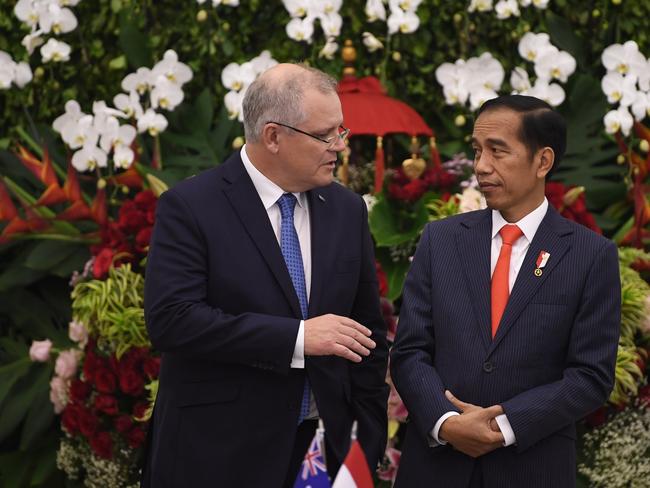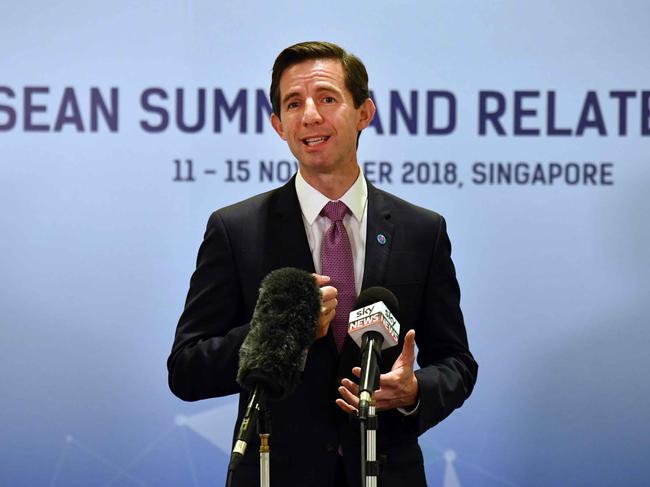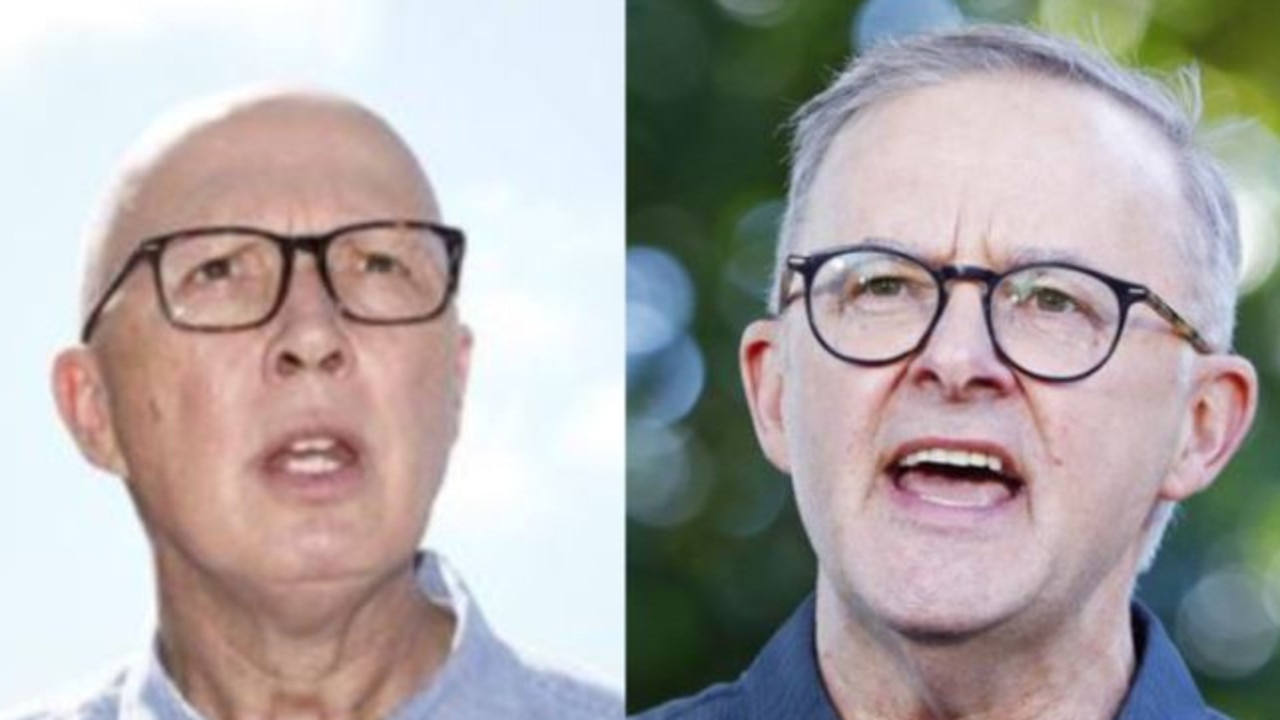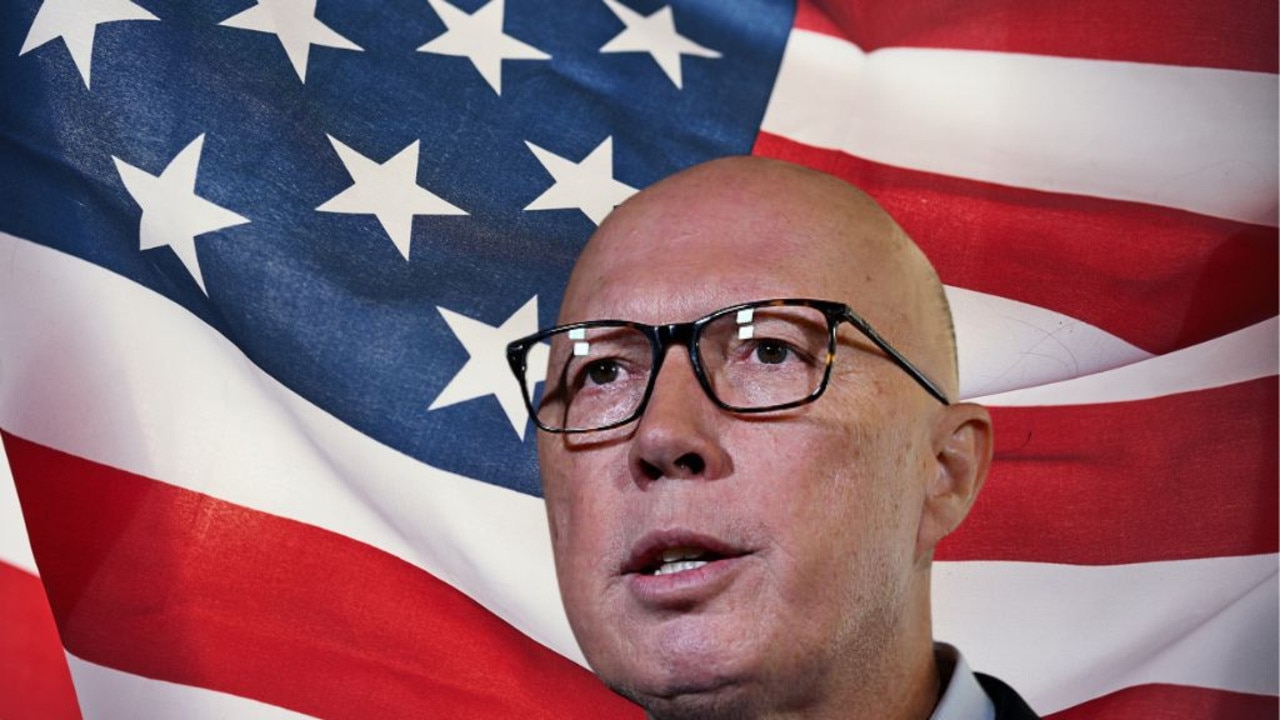Indonesia free trade deal on hold while Australia considers Israel embassy move, minister says
Australia will decide by Christmas whether to move its embassy in Israel to Jerusalem, Scott Morrison says, as Indonesia confirms the move has stalled a free trade deal between the two countries.
National
Don't miss out on the headlines from National. Followed categories will be added to My News.
Australia will decide by Christmas whether to move its embassy in Israel to Jerusalem, Scott Morrison says, as Indonesia confirms the potential move has stalled a free trade deal between the two countries.
Trade Minister Enggartiasto Lukita confirmed the stance yesterday on the sidelines of the ASEAN summit in Singapore where Prime Minister Morrison met with his Indonesian counterpart Joko Widodo today.
“It can be signed any time but when you will sign it … depends on Australia’s position (on the embassy),” Mr Lukita told Indonesian media yesterday, according to the Nikkei Asian Review.
Mr Morrison acknowledged the trade deal was “not in a position to be signed at this point” today following a “friendly and respectful conversation” with President Widodo.
The Prime Minister told reporters in Singapore he would announce a final decision on whether to move Australia’s embassy in Israel to Jerusalem by Christmas, but said the issue of the move and the trade deal were “not raised in connection” when he met with the President this morning.
EARLIER: Minister downplays reports the Indo trade deal is at risk

“On the issue of the trade agreement, there was an absolute understanding of the great opportunities that this presents for both countries,” Mr Morrison said.
“The final text of that is still being brushed, so that’s not in a position to be signed at this point. And we discussed that we’ll be looking for an opportunity to do that and that’s a matter still to be determined.”
Mr Morrison added that he had advised President Widodo of Australia’s position on the embassy move was about progress towards a two-state solution.
“We have a long standing relationship with Indonesia and a comprehensive partnership ... from time to time, issues arise. You’re able to talk about them openly and honestly and in a friendly way,” he said.
Mr Morrison also brushed off a Liberal senator’s suggestion that the government should rethink its foreign aid funding for Indonesia if the nation wanted to direct Australia’s foreign policy.
If Indonesia really wants to dictate Aus foreign policy on the middle east, should we rethink the $360 million each year we give them in aid? Instead, how about we calmly finalise this FTA which will lift many Indonesians out of poverty and assist Australian farmers and jobs.
— Eric Abetz (@SenatorAbetz) November 13, 2018
Senator Eric Abetz took to Twitter this morning to suggest the two countries should “calmly finalise” the trade deal “which will lift many Indonesians out of poverty and assist Australian farmers and jobs” rather than bicker over the potential embassy move.
Mr Morrison later said: “Australia has always been there for Indonesia and that is respected and appreciated by Indonesia.”
Treasurer Josh Frydenberg also responded to the Indonesian Trade Minister’s comment this morning, saying Australia’s foreign policy would “not be dictated to us by other countries”.
“We’ll continue to talk to the Indonesians to work it through to bring the free trade agreement to conclusion but at the same time we maintain our sovereignty and our flexibility with regards to our own foreign policy,” Mr Frydenberg told Sky News today.
“We value deeply our relationship with Indonesia,” he said.
“It’s a critical partnership at the strategic level, at the political level and at the economic level. “And I think we’ve done good work to progress the free trade agreement to where it is.”
“At the same time, as Scott Morrison has reiterated often, publicly, we determine our foreign policy, we’ll determine our processes for evaluating where our embassies are located. That’s not to be dictated to us by other countries.”
Asked whether the embassy move or trade deal was more important, Mr Frydenberg said: “They’re not mutually exclusive.”
He added the government had not yet made a final decision on the embassy move.
Morrison Government ministers have continually rejected reports that the potential embassy move has delayed the signing of the deal, which is expected to benefit Australian farmers in the beef, sheep, grains and sugar industry.
Trade Minister Simon Birmingham told reporters in Singapore yesterday he expected the deal would be signed before April, when the issue of trade could flare ahead of the Indonesian presidential election.

He said the Morrison government did not consider the embassy move and the trade deal to be related issues, or that they were related issues for his Indonesian counterpart either.
“We are working towards getting it signed, and ensuring that all the Is are dotted, the Ts are crossed in English and in Bahasa, and that we are actually in a position to get it signed,” he said.
Prime Minister Morrison will meet with Prime Minister Widodo today for the first time since he announced in the week before the Wentworth by-election that Australia might move its embassy in Israel from Tel Aviv to Jerusalem, sparking an immediate backlash from Palestine, Indonesia and other Arabic nations.
The two leaders are also expected to discuss the threats of terrorism, radicalisation and foreign fighters returning from the Middle East.
Mr Morrison will also meet New Zealand Prime Minister Jacinda Ardern for the first time as leader.
The pair are bound to discuss the issue of sick asylum seeker children on Nauru. For years, New Zealand has offered to resettle at least 150 refugees detained on the remote Pacific island.
Mr Morrison recently signalled he may finally be open to accepting the deal, before quickly ruling it out again.
About 30 asylum seeker children remain on Nauru.
The federal government has quietly been evacuating families to Australia for medical treatment over recent weeks, but is adamant they will not stay in the country.
Mr Morrison will also meet with Chinese Premier Li Keqiang.
Escalating tensions between the United States and China and disputed territorial claims in the South China Sea have emerged as key issues at the Singapore summit.
Some countries have also expressed concerns about the rapid pace of Chinese developments throughout the Indo-Pacific.
But the prime minister is careful not to put Australia’s key trading ally off-side.
Mr Morrison has dampened any expectations of confronting Beijing over its treatment of Muslim minorities, or contested claims in the South China Sea.
He has also indicated Australia may be willing to help fund one-off projects through China’s Belt and Road Initiative, despite signing a rival deal with Japan and the US.
The prime minister will also meet with his Indian counterpart Narendra Modi.
The pair are expected to discuss the revival of an Australia-India-Japan-US security quadrilateral, informally known as the Quad.
India is believed to be holding out on committing to the deal, which is designed to counter China’s growing influence in the region.
They will also discuss an ambitious 16-nation free trade deal known as the Regional Comprehensive Economic Partnership (RCEP).
It’s understood India is proving a major hurdle to the deal — which would be the largest free trade pact — being progressed.


